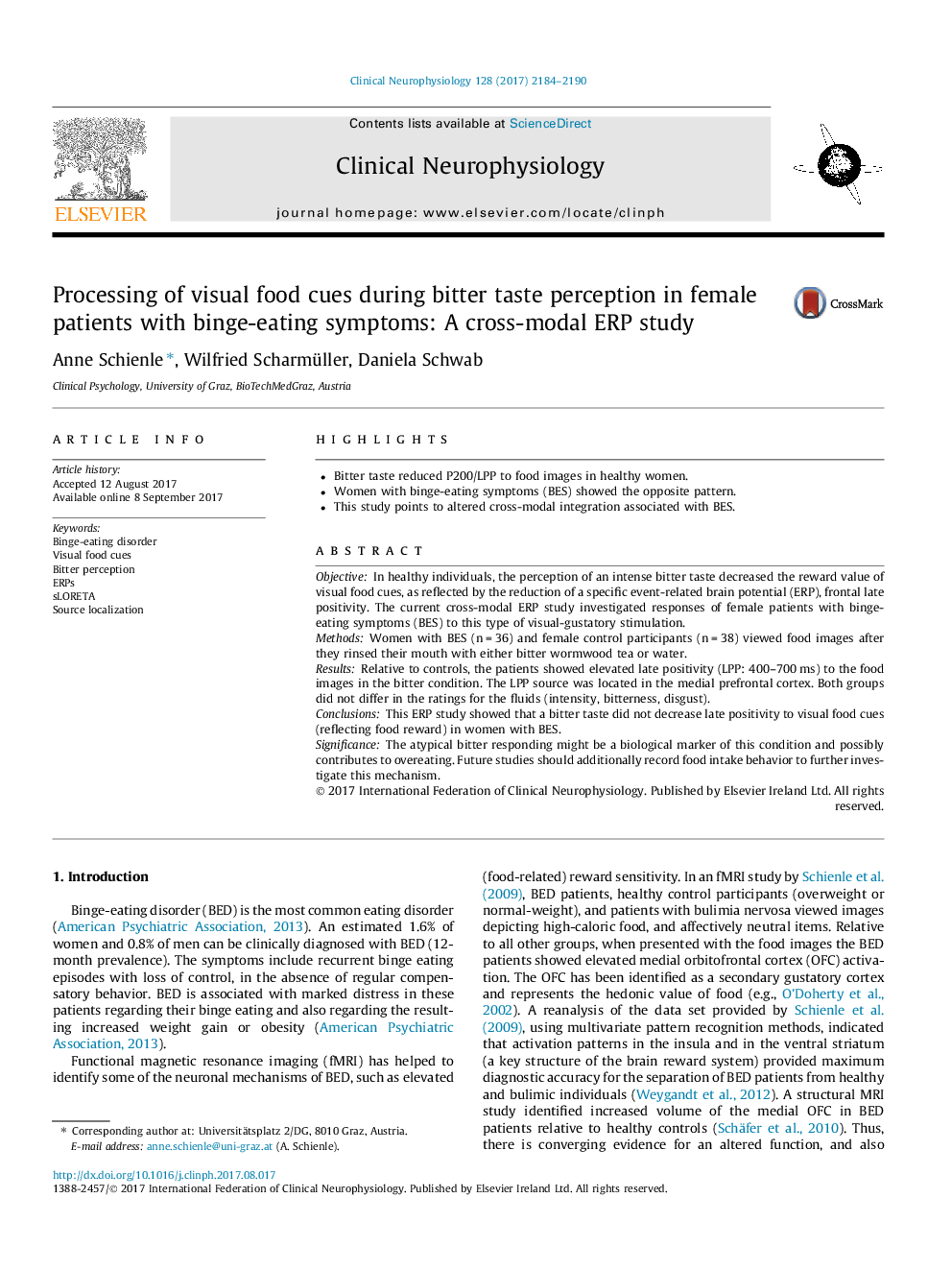| Article ID | Journal | Published Year | Pages | File Type |
|---|---|---|---|---|
| 5627589 | Clinical Neurophysiology | 2017 | 7 Pages |
â¢Bitter taste reduced P200/LPP to food images in healthy women.â¢Women with binge-eating symptoms (BES) showed the opposite pattern.â¢This study points to altered cross-modal integration associated with BES.
ObjectiveIn healthy individuals, the perception of an intense bitter taste decreased the reward value of visual food cues, as reflected by the reduction of a specific event-related brain potential (ERP), frontal late positivity. The current cross-modal ERP study investigated responses of female patients with binge-eating symptoms (BES) to this type of visual-gustatory stimulation.MethodsWomen with BES (n = 36) and female control participants (n = 38) viewed food images after they rinsed their mouth with either bitter wormwood tea or water.ResultsRelative to controls, the patients showed elevated late positivity (LPP: 400-700 ms) to the food images in the bitter condition. The LPP source was located in the medial prefrontal cortex. Both groups did not differ in the ratings for the fluids (intensity, bitterness, disgust).ConclusionsThis ERP study showed that a bitter taste did not decrease late positivity to visual food cues (reflecting food reward) in women with BES.SignificanceThe atypical bitter responding might be a biological marker of this condition and possibly contributes to overeating. Future studies should additionally record food intake behavior to further investigate this mechanism.
